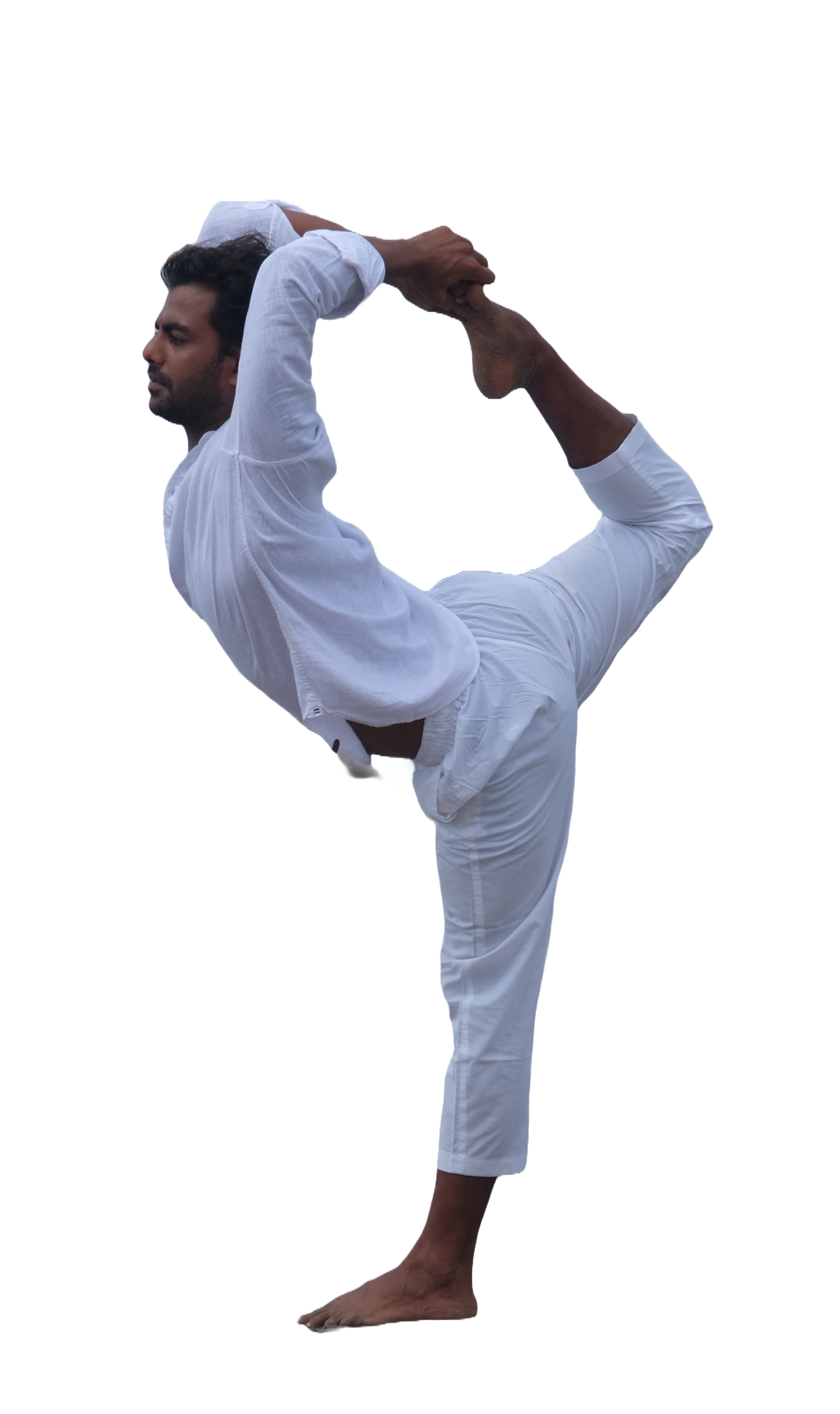
The Path to Yoga Mastery: A Journey Through 200 and 300 Hour Teacher Training
Are you considering a transformative journey into the world of yoga? Whether you’re a budding yogi, an aspiring instructor, or someone curious about the demand for yoga in Germany, this blog will answer your burning questions and take you on a journey through the incredible world of yoga teacher training.
Is yoga in demand in Germany
Yoga has been experiencing a remarkable surge in popularity worldwide, and Germany is no exception. The demand for yoga in Germany has grown significantly over the past decade. The practice of yoga is now embraced by people from all walks of life, from busy urban professionals seeking stress relief to athletes looking to improve flexibility and endurance. The serene landscapes and tranquil vibes in Germany provide the perfect backdrop for yoga retreats and outdoor sessions.
Additionally, the COVID-19 pandemic has highlighted the importance of mental and physical well-being, further increasing the demand for yoga as a means of self-care and holistic health. Whether you’re in Berlin, Munich, or any other German city, you’ll find a thriving yoga community.
How long does it take to complete 200 h Yoga teacher training in Germany
The answer to this question might surprise you. Completing 200 h Yoga teacher training Germany in just about the hours on the mat. It’s a holistic, immersive experience that blends physical practice, philosophy, anatomy, and teaching methodology. On average, a 200 hour yoga teacher training program spans over the course of several weeks, typically ranging from 4 to 8 weeks if taken full-time.
But remember, yoga is a lifelong journey, and teacher training is just the beginning. After your 200 hour On-Site Yoga Training Courses, it’s advisable to continue your personal practice and gain teaching experience to truly master the art of yoga instruction.
What are things to learn in 200 hour Yoga training in Germany
A 200 hour Yoga Teacher Training in Germany is designed to provide participants with a strong foundation in yoga philosophy, asana (postures), anatomy, teaching methodology, and personal practice. While the specifics may vary from one YTT program to another, here are some common topics and skills you can expect to learn during a Best Yoga retreat in Germany.
1. Yoga Philosophy and History : Study the foundational texts of yoga, including the Yoga Sutras of Patanjali, the Bhagavad Gita, and the history and philosophy of yoga.
2. Asana (Postures) and Alignment : Learn the proper alignment, modifications, and variations for a wide range of yoga poses. Understand the benefits and contraindications of each pose.
3. Pranayama (Breath Control) : Explore various breathing techniques and their effects on the body and mind. Understand how to incorporate breath work into your practice and teaching.
4. Anatomy and Physiology : Gain knowledge of the human body, its muscles, bones, and how they relate to yoga postures. Learn about common injuries and how to prevent them.
5. Meditation and Mindfulness : Develop a meditation practice and explore mindfulness techniques. Understand the benefits of meditation and how to guide others in meditation.
6. Teaching Methodology : Learn the art of teaching, including class sequencing, cueing, adjusting, and creating a safe and inclusive environment for students. Practice teaching and receive feedback.
7. Class Management : Understand how to manage a class effectively, including time management, dealing with different student levels, and creating a positive class atmosphere.
8. Yogic Lifestyle and Ethics : Explore the ethical principles of yoga (Yamas and Niyamas) and how to incorporate them into your daily life. Learn about the yogic diet and lifestyle.
9. Chakras and Energy Anatomy : Gain knowledge of the chakra system and subtle energy anatomy in yoga. Learn how to balance and work with the energy centers in the body.
10. Sanskrit and Mantras : Study the basics of Sanskrit, the language of yoga, and explore the use of mantras and their significance in practice.
11. Yoga History and Lineages : Understand the history and various lineages of yoga, including Hatha, Vinyasa, Ashtanga, and more.
12. Practical Teaching Experience : Gain hands-on teaching experience by leading portions of actual classes under the guidance of experienced instructors.
13. Self-Practice and Self-Reflection : Develop and maintain a personal yoga practice. Reflect on your own journey and experiences as a practitioner and future teacher.
14. Yoga Business and Ethics : Learn about the business aspect of yoga, including marketing, ethics, and legal considerations for yoga instructors.
15. Final Assessment : Many 200 hour YTT programs require a final exam, a teaching demonstration, or a project to demonstrate your knowledge and teaching abilities.
It’s important to research and choose a YTT program that aligns with your goals and interests. Keep in mind that while a 200 hour YTT provides a strong foundation, teaching yoga is a lifelong journey of learning and self-discovery.
After completing your 200-hour YTT in Germany, you may choose to continue your education with a 300-hour YTT or pursue specialised training in areas like restorative yoga, yoga therapy, or prenatal yoga.
Is 300 hour yoga teacher training in germany worth it .
After completing your 200-hour yoga teacher training, you might wonder if investing more time and effort into a 300-hour advanced yoga teacher training is worth it. The answer to this question depends on your goals and aspirations. A 300-hour yoga teacher training program goes beyond the basics, delving deeper into advanced teaching methodologies, philosophy, anatomy, and personal practice.
If you’re committed to becoming a highly skilled and knowledgeable yoga instructor, the 300 h Yoga course Germany. It offers the opportunity to specialize in a particular area of yoga, such as therapeutic yoga, yoga for special populations, or advanced asana practice. This deeper understanding will not only make you a more proficient teacher but also allow you to cater to a broader range of students with diverse needs.
What are things to learn in 300 h Yoga teacher training in Germany
A 300 h Yoga training in Germany builds upon the foundation established in a 200-hour YTT and delves deeper into various aspects of yoga. These programs are designed for those who have already completed their 200-hour YTT or have equivalent experience. The curriculum for a 300-hour YTT may vary from one program to another, but here are some common topics and skills you can expect to learn during a 300-hour YTT course in Germany:
1. Advanced Asana and Alignment : Explore more advanced yoga poses, transitions, and alignment principles. Develop a deeper understanding of adjustments and variations for a wider range of postures.
2. Sequencing and Theming : Learn how to create well-structured, creative, and thematic yoga sequences for different levels and intentions. Understand the art of intelligent sequencing.
3. Yoga Philosophy and Subtle Anatomy : Dive deeper into the study of yoga philosophy, including the Yoga Sutras, Bhagavad Gita, and other classical texts. Explore the deeper aspects of subtle anatomy, such as nadis, koshas, and more.
4. Advanced Pranayama and Meditation : Enhance your understanding of pranayama and meditation techniques, including advanced practices and their therapeutic applications.
5. Yoga for Special Populations : Learn how to adapt yoga practices for individuals with specific needs, such as seniors, pregnant women, and those with injuries or medical conditions.
6. Yoga Therapy : Gain insights into using yoga as a therapeutic tool to address physical and mental health issues. Understand the principles of yoga therapy and how to create personalized practices for individuals.
7. Ayurveda : Explore the principles of Ayurveda, the sister science of yoga, and how to incorporate Ayurvedic wisdom into your yoga teaching and lifestyle.
8. Chakras and Energy Healing : Deepen your understanding of the chakra system and explore energy healing techniques like Reiki and chakra balancing.
9. Advanced Teaching Methodology : Hone your teaching skills, including hands-on adjustments, advanced cueing, and effective communication in a class setting.
10. Philosophy and Ethics : Engage in in-depth discussions on yoga philosophy and ethics, including the ethical responsibilities of a yoga teacher.
11. Yogic Business and Marketing : Learn more about the business side of yoga, including how to run a successful yoga studio, market your classes, and manage legal and financial aspects.
12. Self-Practice and Self-Reflection : Deepen your personal yoga practice and continue self-reflection and self-development as a teacher.
13. Mentorship and Apprenticeship : Many 300-hour YTT programs include mentorship opportunities, where you work closely with experienced teachers to refine your skills and gain practical teaching experience.
14. Final Assessment : Similar to the 200-hour YTT, many 300-hour programs may require a final exam, a teaching demonstration, or a project to demonstrate your advanced knowledge and teaching abilities.
15. Specialisation : Some 300-hour YTT programs offer specialised tracks, allowing you to focus on areas like restorative yoga, prenatal yoga, yoga for trauma recovery, or yoga for athletes.
Remember that a 300-hour YTT is an advanced program that not only deepens your knowledge but also helps you become a more skilled and confident yoga teacher. It’s an opportunity to specialize in areas of interest and gain expertise that sets you apart in the field. The specific curriculum may vary by program, so research and choose a program that aligns with your goals and interests.
In conclusion, embarking on a journey through 200 and 300 hour yoga teacher training in germany is a profound and transformative experience. The time it takes is not just about the hours on your mat, but the dedication and passion you bring to your practice and teaching. The demand for yoga in Germany is on the rise, and if you’re considering furthering your yoga education with a 300-hour program, the investment can be incredibly worthwhile in your path towards becoming a masterful yoga instructor.
So, whether you’re a passionate yogi looking to deepen your practice, an aspiring instructor ready to share your knowledge, or simply curious about the yoga landscape in Germany, remember that yoga is a lifelong journey, and every step you take is a step toward self-discovery, wellness, and helping others find their path to inner peace and well-being.

